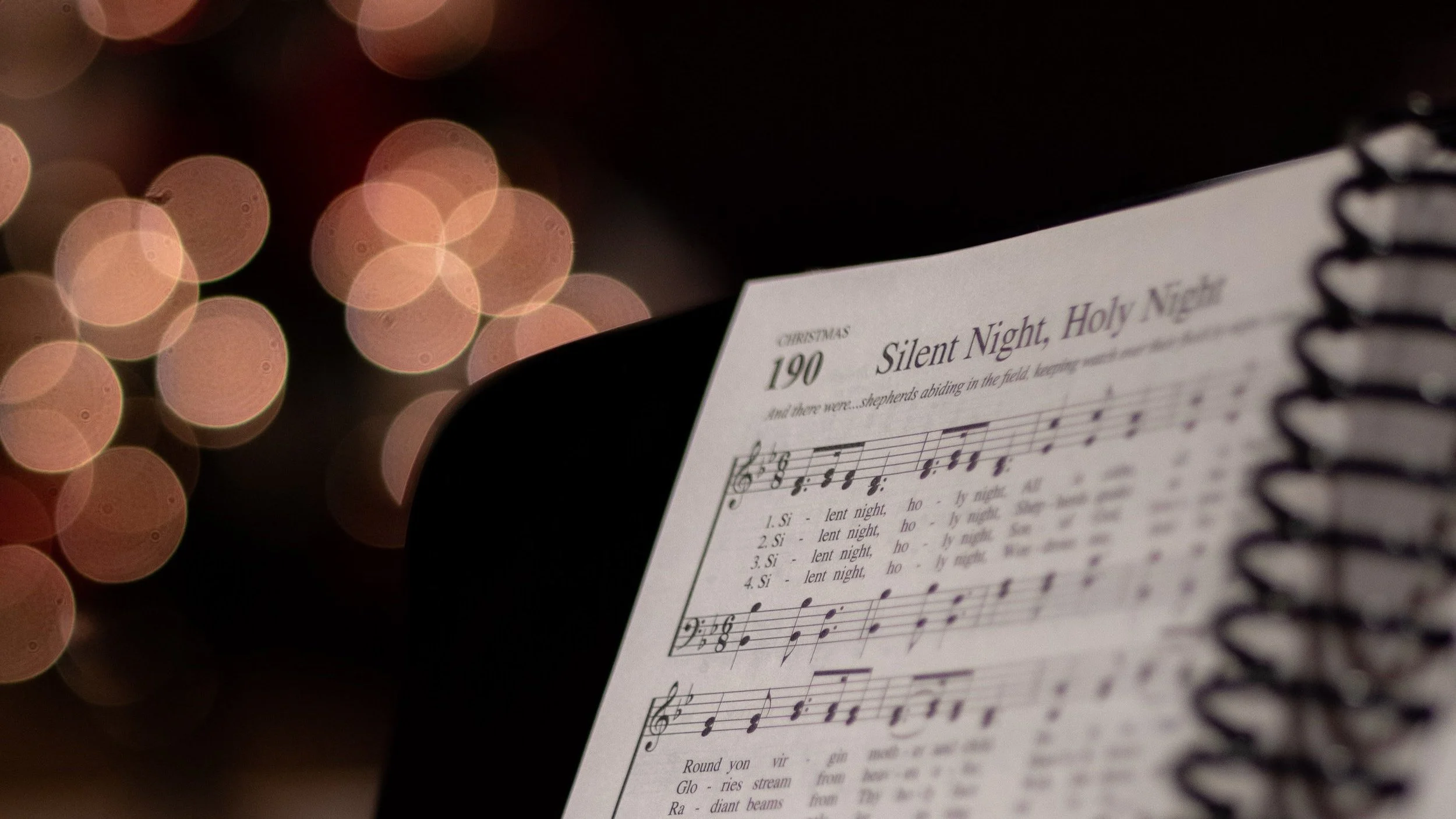Mary Sang a Song of Praise: Finding Comfort Through Music During Advent
“Music, that is the science or the sense of proper modulation, is likewise given by God’s generosity to mortals having rational souls in order to lead them to higher things” (Saint Augustine).
Advent 2021: Responding to God’s Call and Growing in Community
This Advent, our leadership and writing teams are reflecting on the Visitation—Mary’s visit to St. Elizabeth while they were pregnant with Jesus and St. John the Baptist. Click here to read more.
It happens every year: As soon as the Thanksgiving turkey is consumed, the world eagerly latches on to all things Christmas: the decorations, the hot chocolate and cookies, and, of course, the music.
When those first holiday notes hit the radio, “the weary world rejoices.” It’s as if our hearts need something that these tunes have. Because music is core to our human experience, it can transform us in more ways than one.
More and more, experts find that music is powerful, improving our well-being on different levels. This may be a reason that so many winter carols emerged over the years: They jollify the gloomy scene “way up north where the air gets cold.” It has become a means of coping with seasonal strain.
Music is Good for the Heart
For each of us, there’s that one song that can change our day in an instant. I know many people who go to their favorite worship song in times of need. There is comfort in hearing God’s truth in music.
A dear friend, Katherine Lantigua, who is a board certified music therapist, recommends being intentional about what music we are letting into our hearts and minds. Music is internalized, even when we don’t realize it, so what we choose makes a difference. When we start to feel the effects of stress—anxiety, irritability, anger, or sadness—we need to be mindful of what we listen to by selecting melodies and lyrics that are calming, encouraging, or joyful.
Uplifting pieces, such as the kind we hear in December, decrease cortisol, the stress hormone, by stimulating dopamine, the hormone that enhances our mood. This “happiness hormone” increases feelings of motivation, enjoyment, and reward. Mothers often use happy music to cheer up a fussy child, but it can also do wonders for adults.
Writing our own lyrics to an existing song or setting music to meaningful words, is another exercise that helps us organize our thoughts and feelings. It brings a sense of control over situations that are beyond us. Whether we are actively listening or playing music, it redirects our focus onto a positive stimulus.
Music Can Help With Pain
Stress not only affects our mood, but it can also take a toll on our body. Some effects of distress include headaches, muscle tension or discomfort, fatigue, upset stomach, and trouble sleeping. In hospitals, music therapy has helped people undergoing chemotherapy and other procedures by reducing their pain perception. Music draws attention away from the pain, said Lantigua. It “keeps the brain relaxed or distracted during a procedure.”
Music Brings Us Together
Listening to "Silent Night" on our own is great—but it’s even better when we share the experience with others.
Cultures worldwide have always come together to sing with one another during the holidays. Music brings us a sense of community, which we especially need during these times. According to positive psychologists, experiencing connection with a community combats isolation and alienation when we need encouragement or sympathy.
The universality of Catholicism means that there are many ways to celebrate Christ’s arrival, including the Mexican Las Posadas, Puerto Rican parrandas, or Filipino Simbang Gabi celebrations. There are many beautiful events during Advent that include music. If your diocese has them, it’s a great way to meet others while immersing yourself in the spirit of the season.
Music Is Part of Our Faith
We have a perfect example of praise in Mary’s Magnificat. After receiving the news of her pregnancy and arriving at Elizabeth’s house, she sang a song—a moment of worship. As Catholics, music has a profound place in our ecclesial history. We have hundreds of years of liturgical music and many contemporary musicians reshaping the same truths into new sounds.
Singing is praying twice, and we know that coming to the Lord through music can usher profound moments of prayer. We begin the season with songs of yearning and anticipation and move toward the Nativity with songs of exultation. St. Augustine once noted that “our souls are moved to the ardor of piety by the sacred words more piously and powerfully when these words are sung.”
Without a doubt, music is a gift from the Lord, and we can use it to both praise Him and find comfort through it.
Blanca Thérèse Morales is first and foremost a beloved daughter of God the Father. She has been blessed to spend 12 years writing about events, culture and faith for various publications, including The Florida Catholic, Verily Magazine and Life Teen. It was in meeting great people through her writing that she discovered her other passions: building community, hosting brunches, and organizing house concerts. When she’s not media buying or creating content at work, she can be found exploring new places, searching for the best lattes or microblogging at @Rise.And.Create. Find her on LinkedIn, or connect with her on Instagram @pursuingloveliness.


